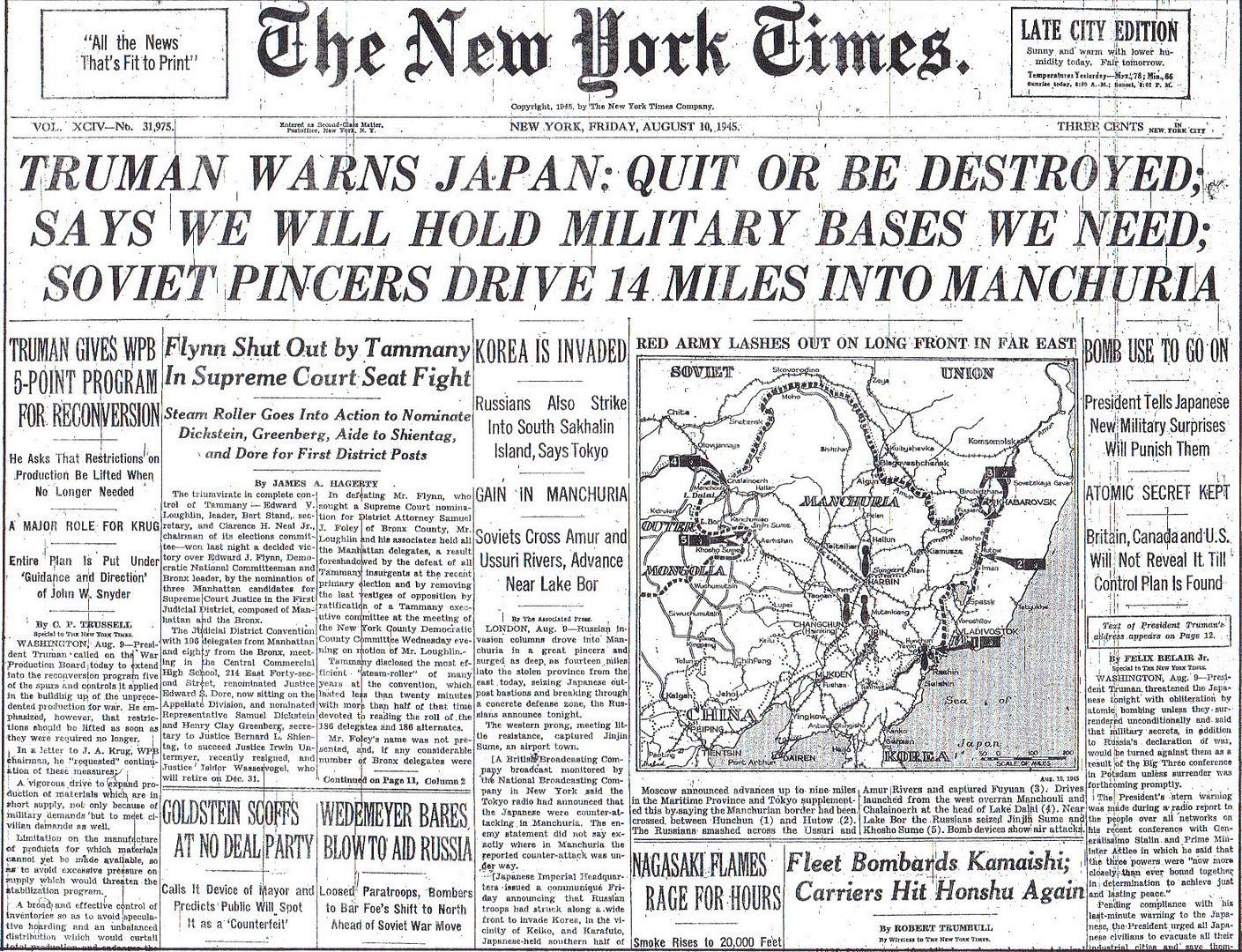
Posted on 08/10/2015 4:22:03 AM PDT by Homer_J_Simpson

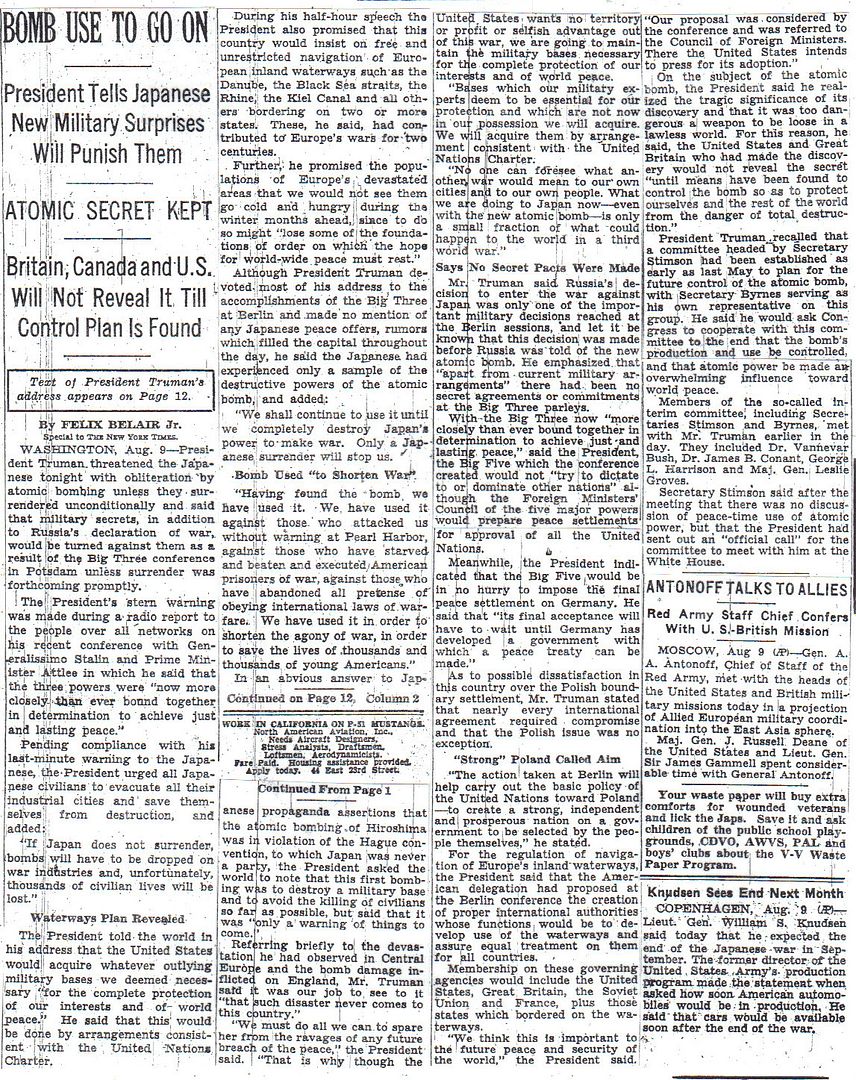
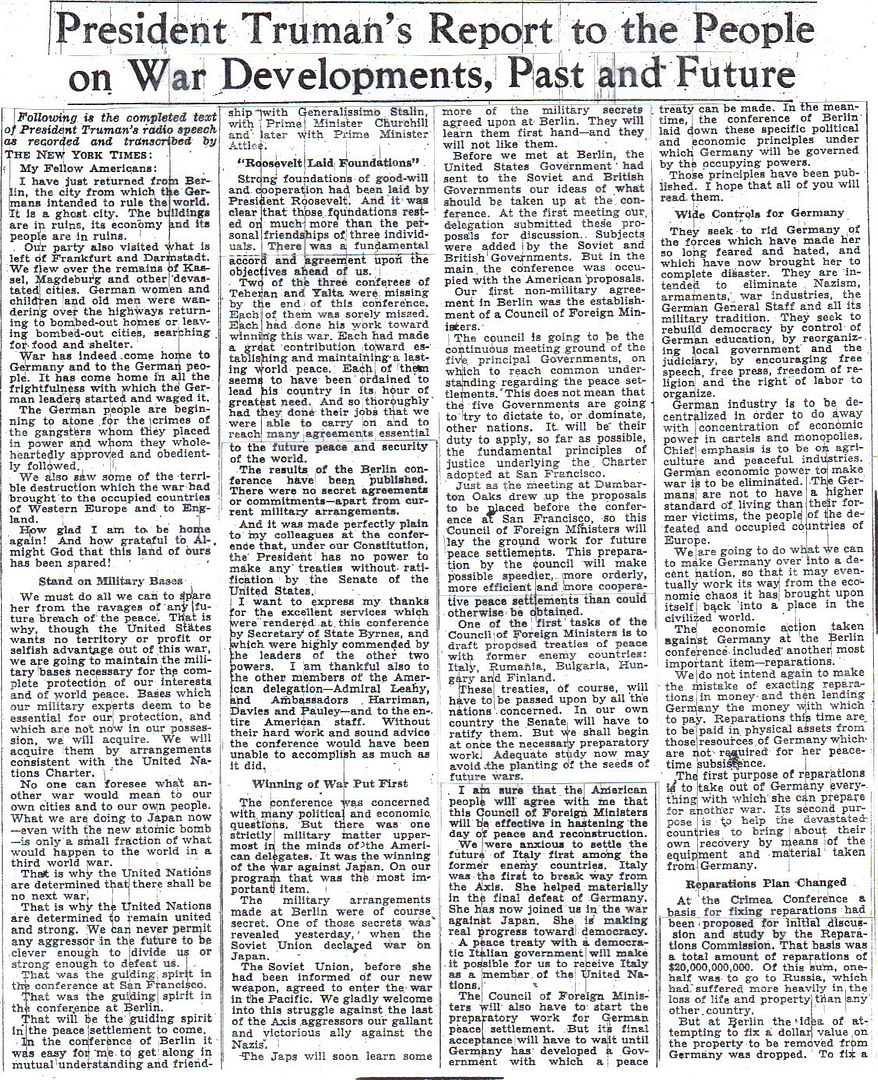
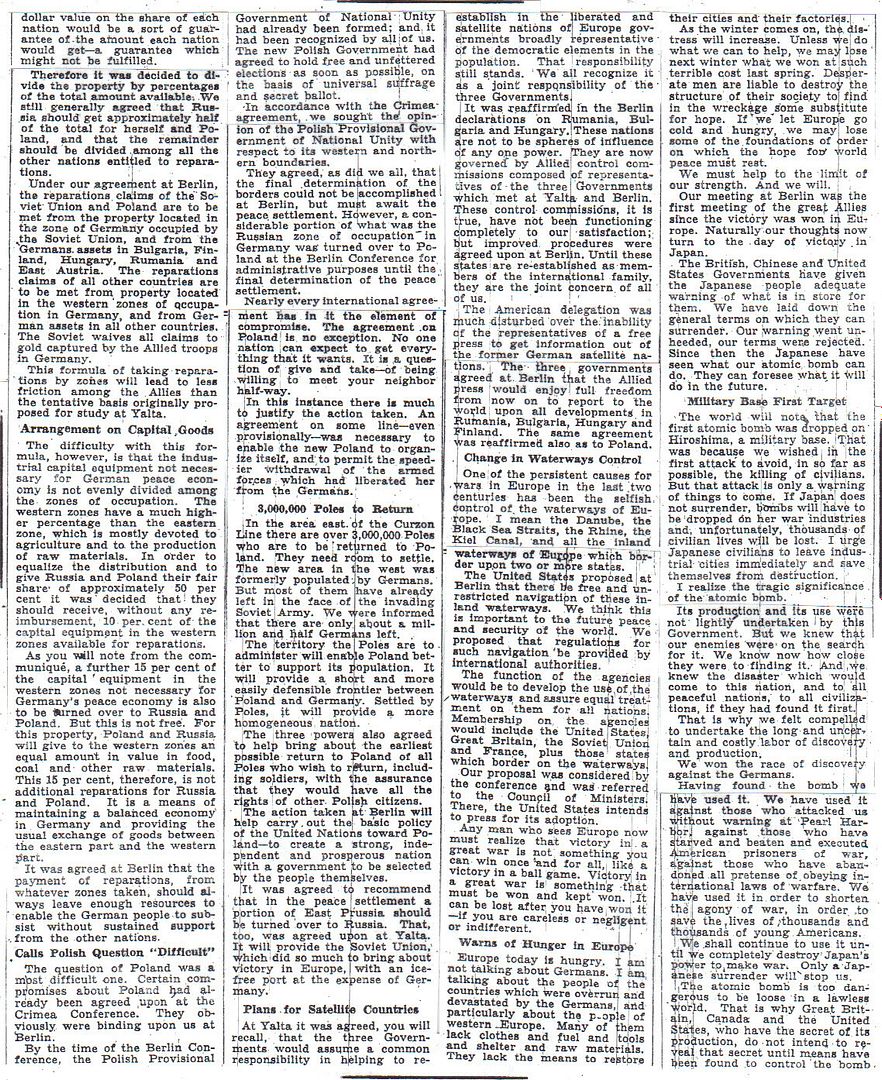
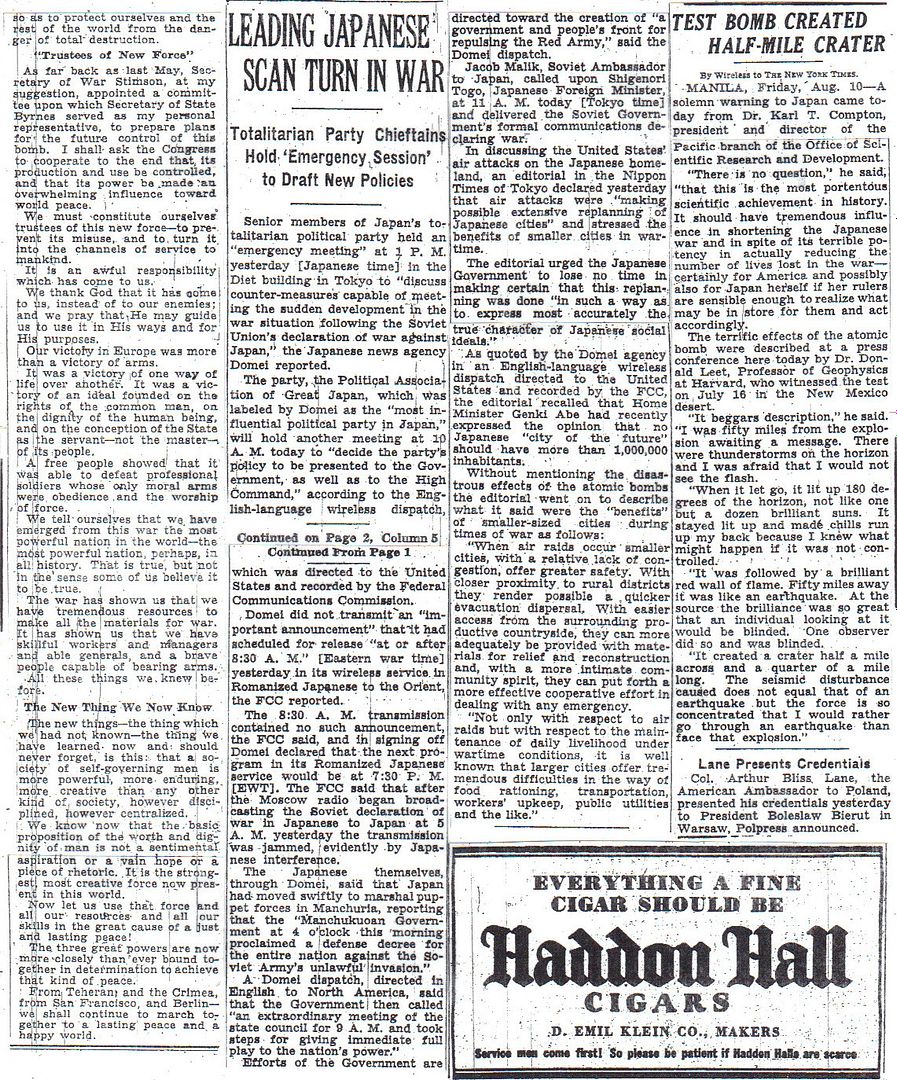
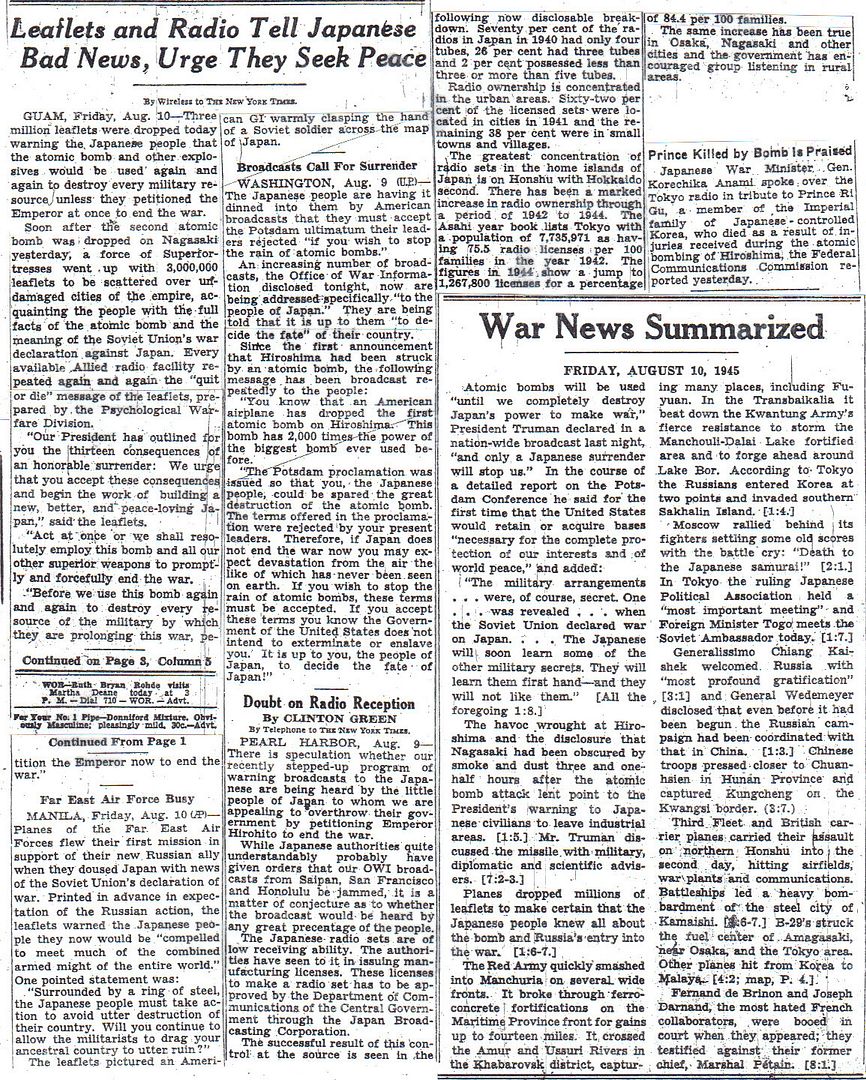
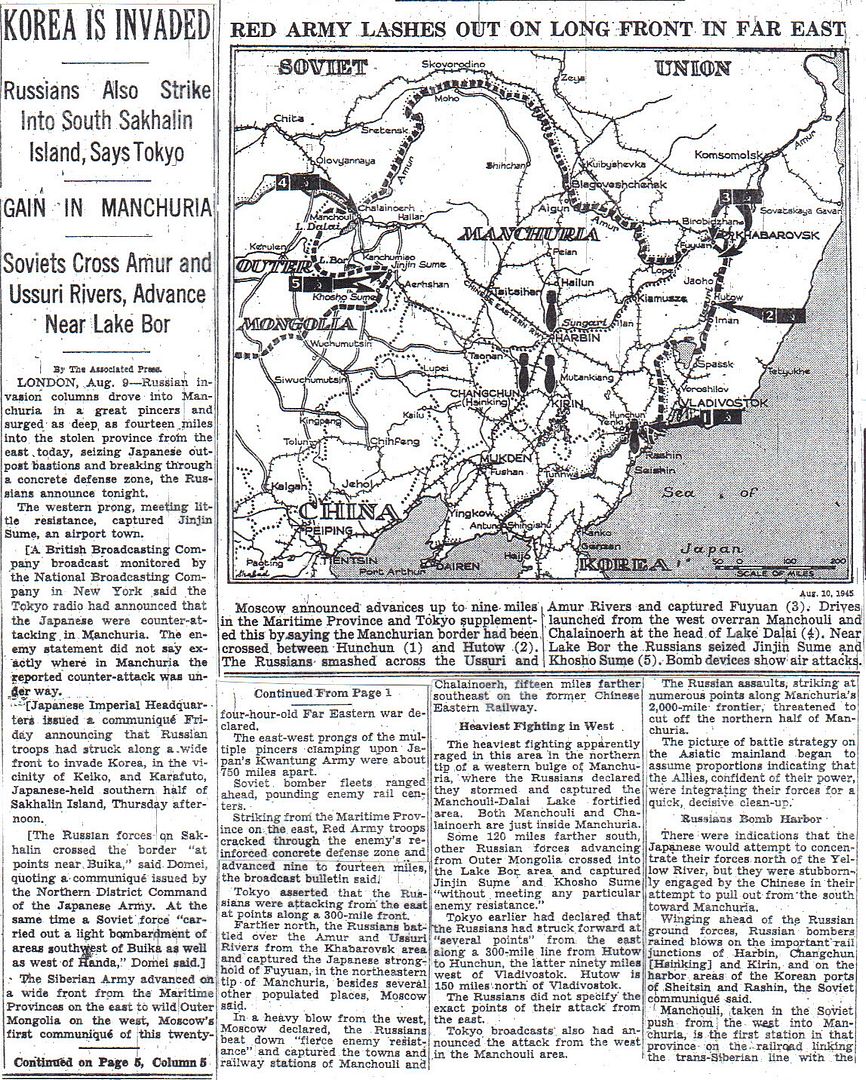
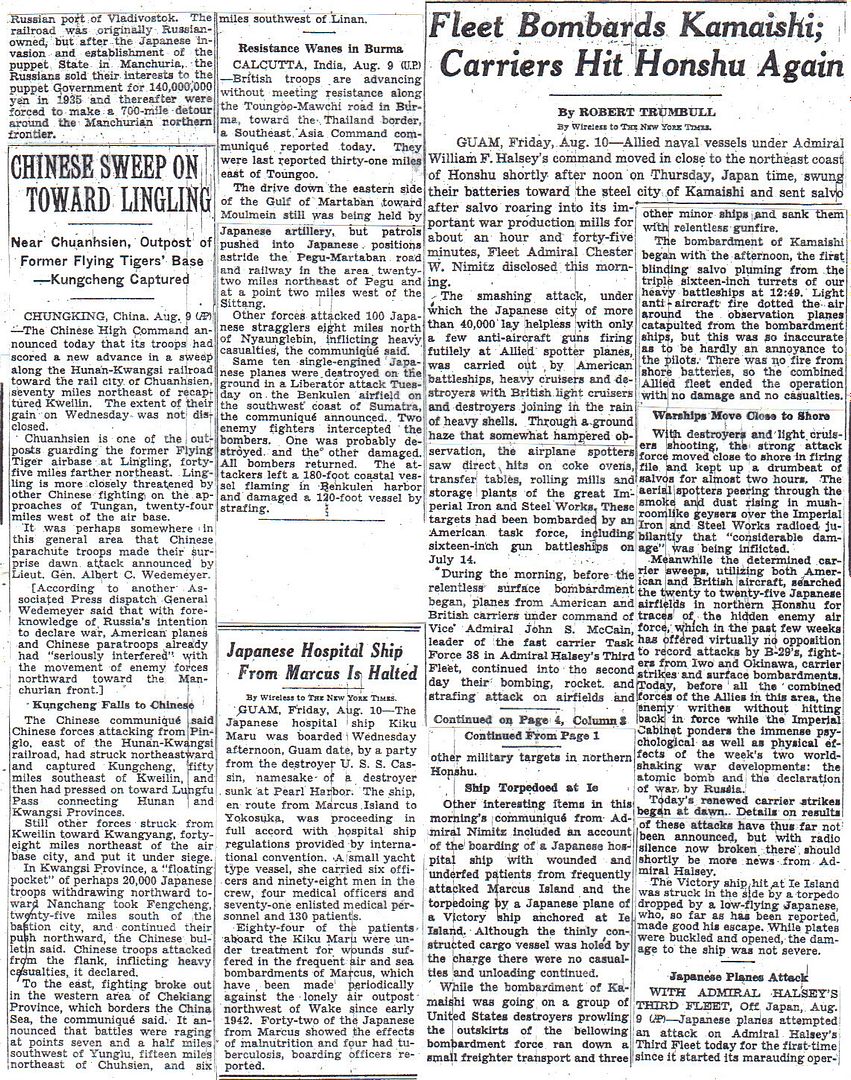
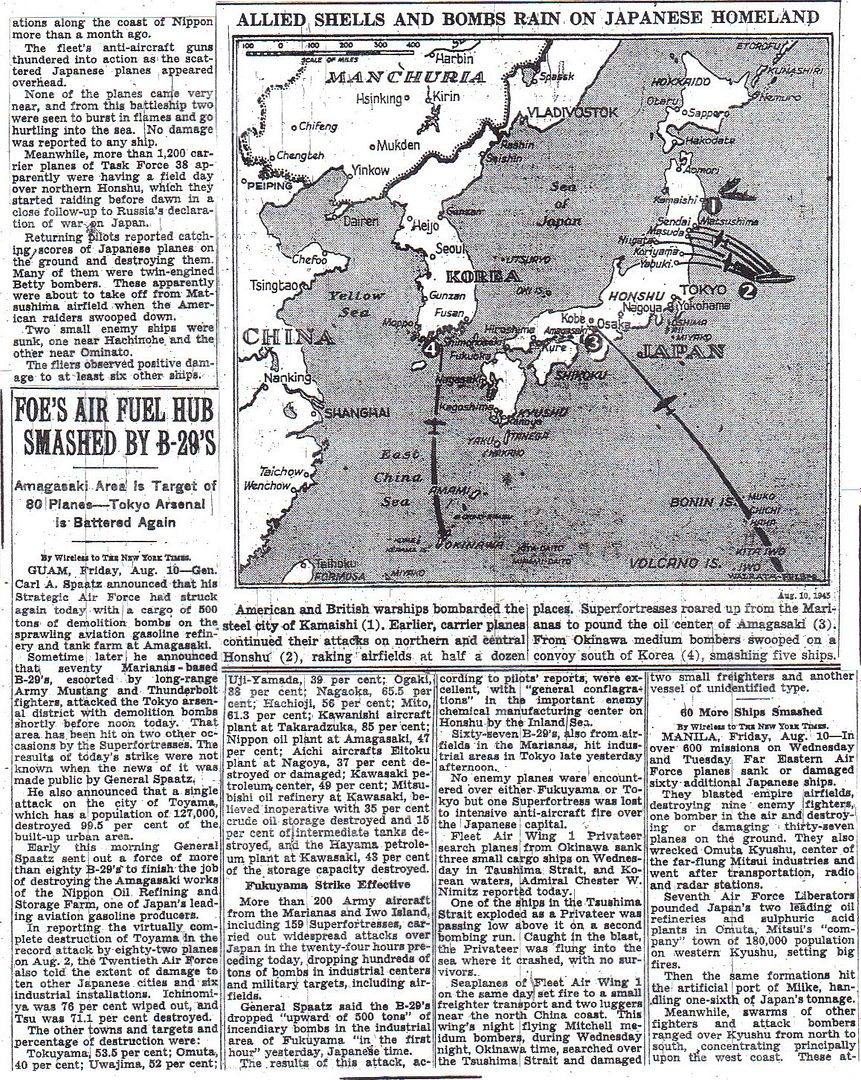
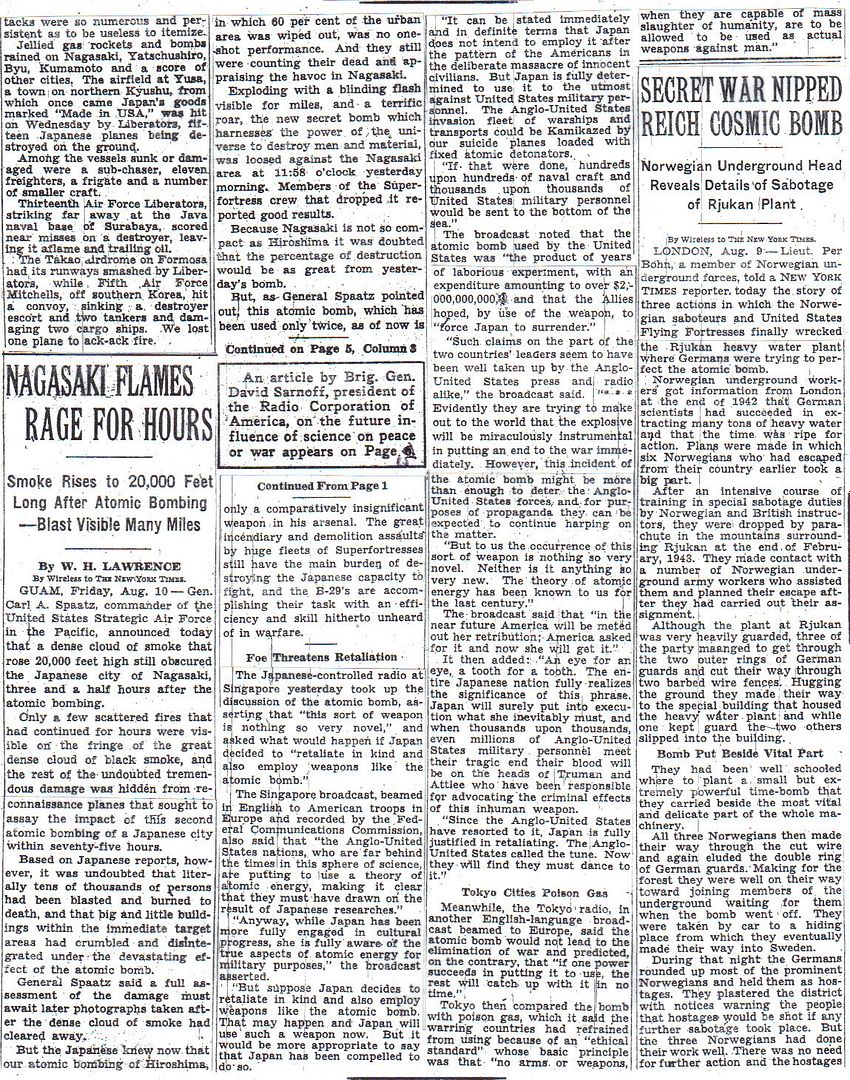
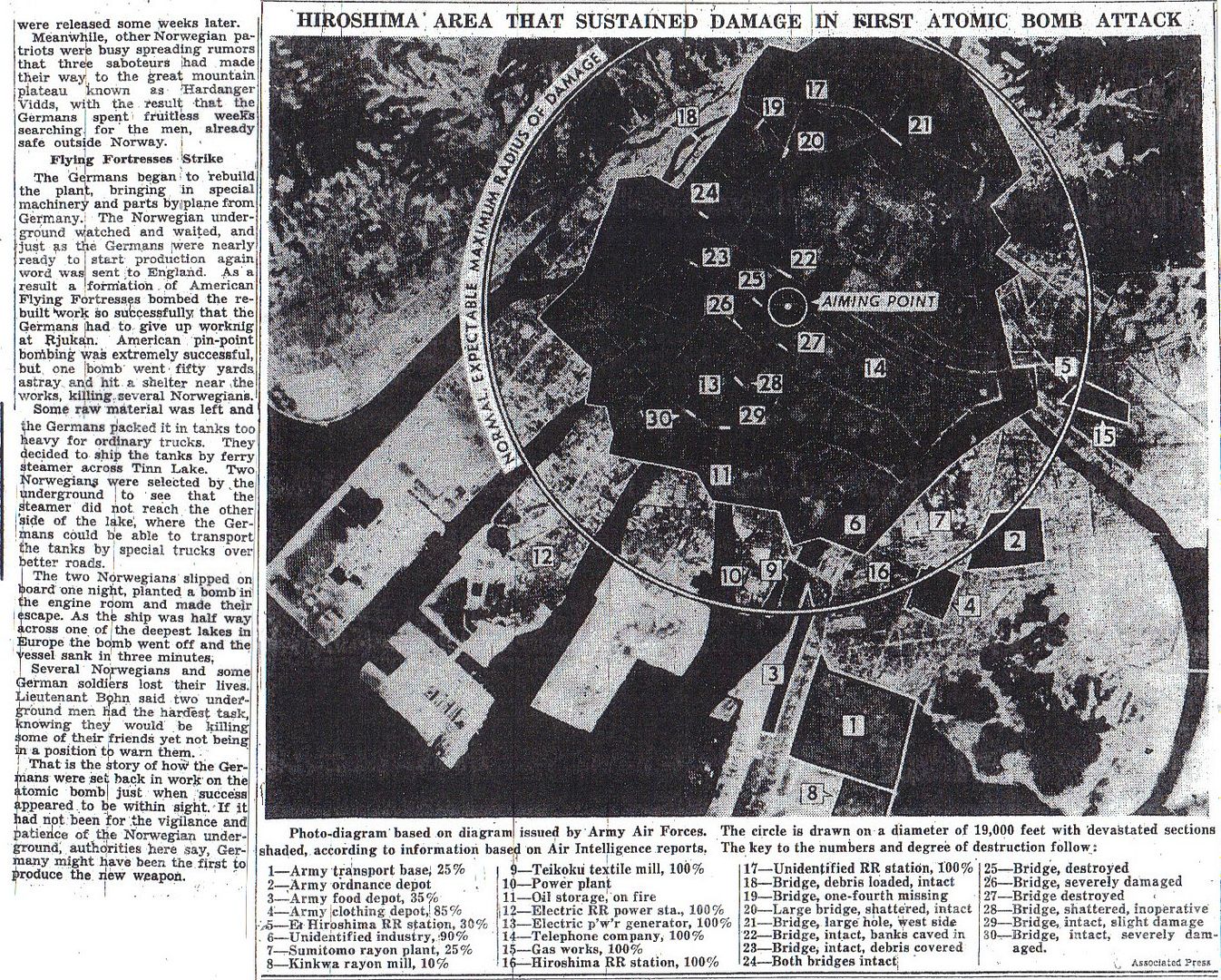
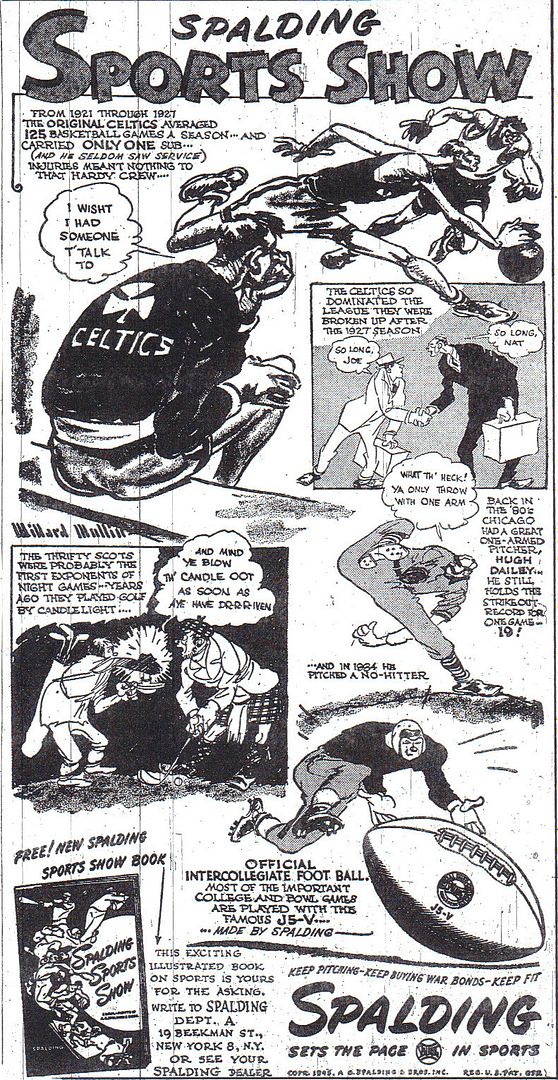
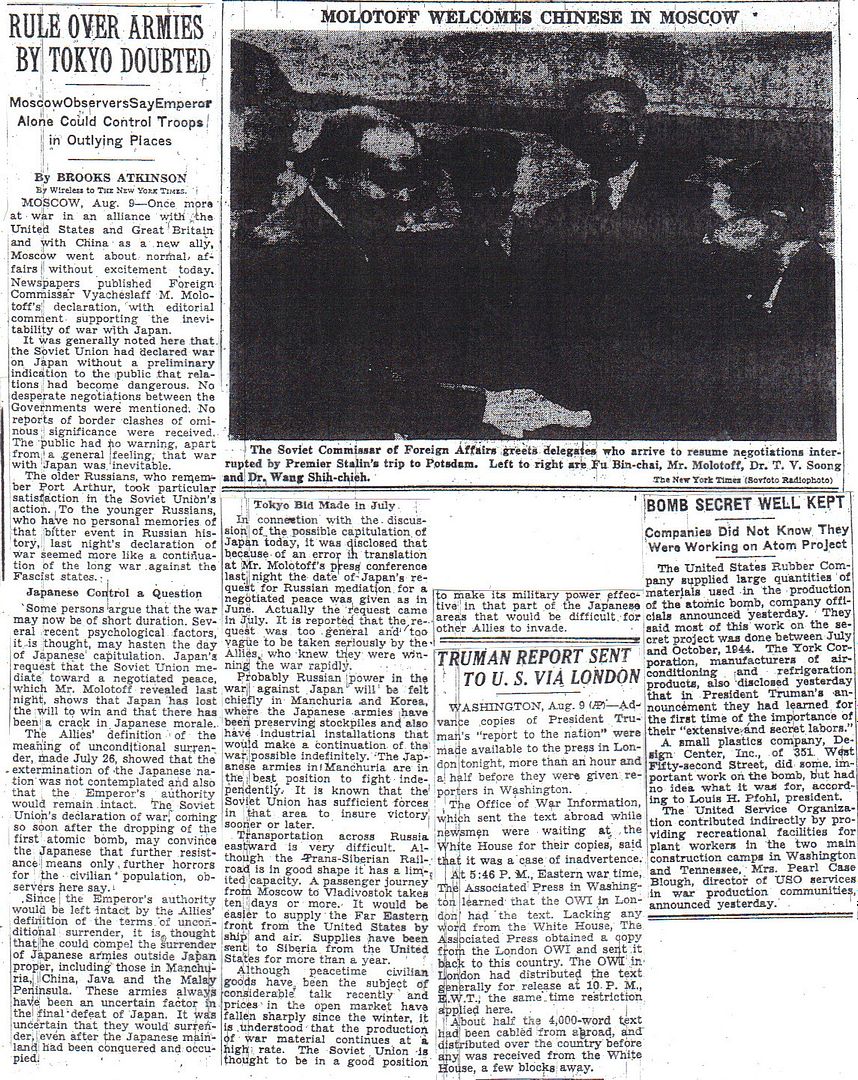
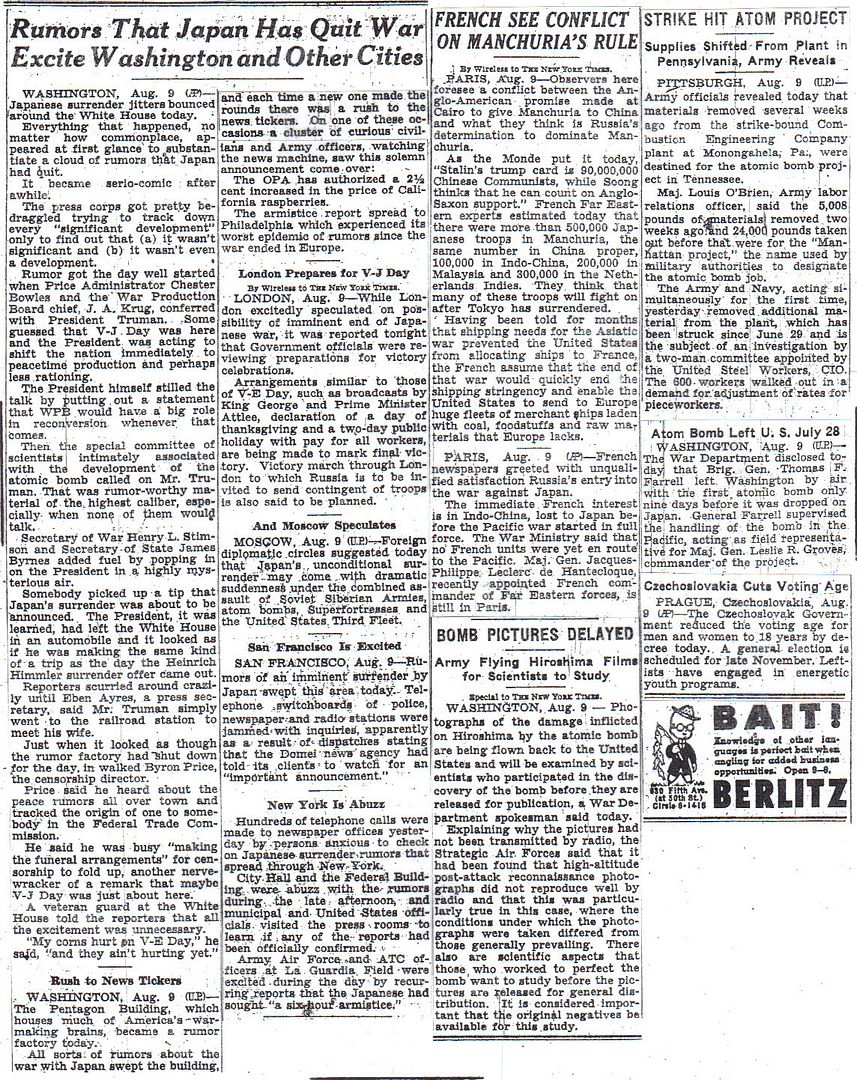
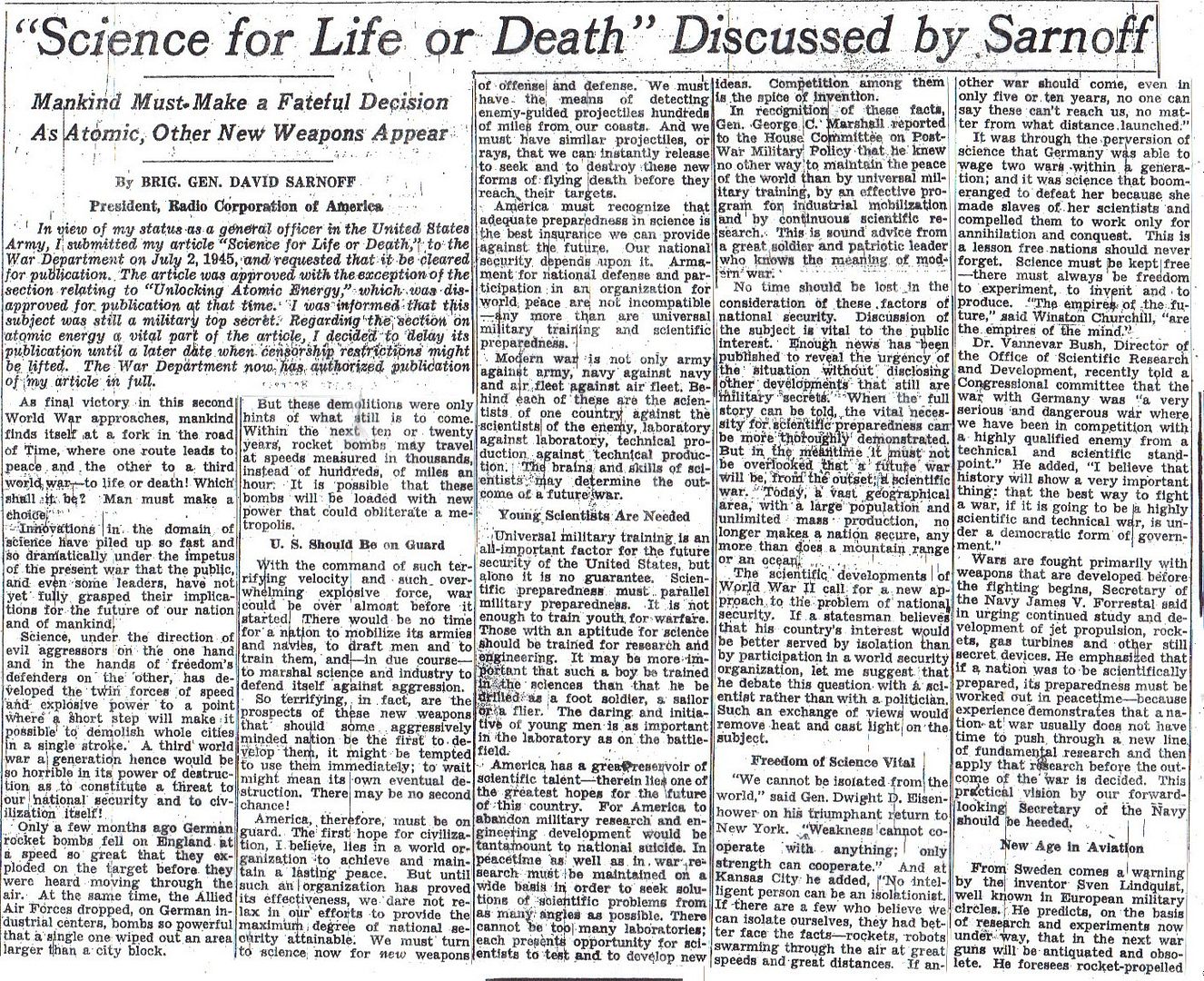
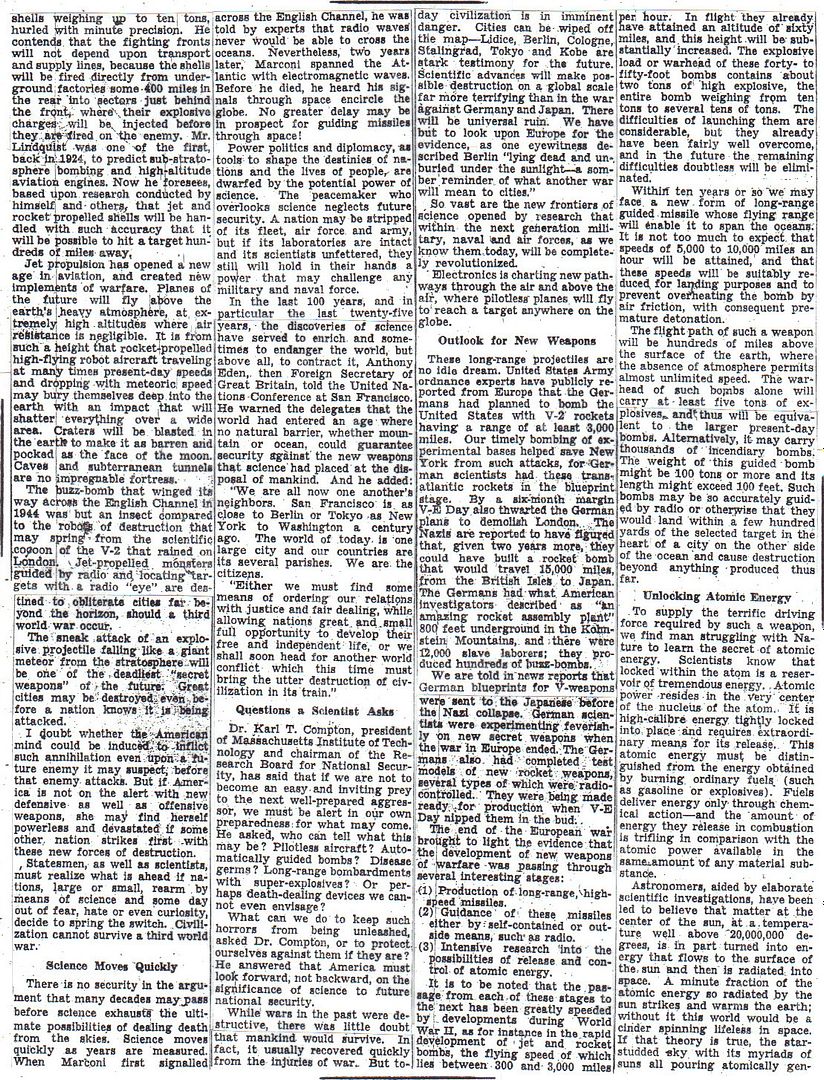
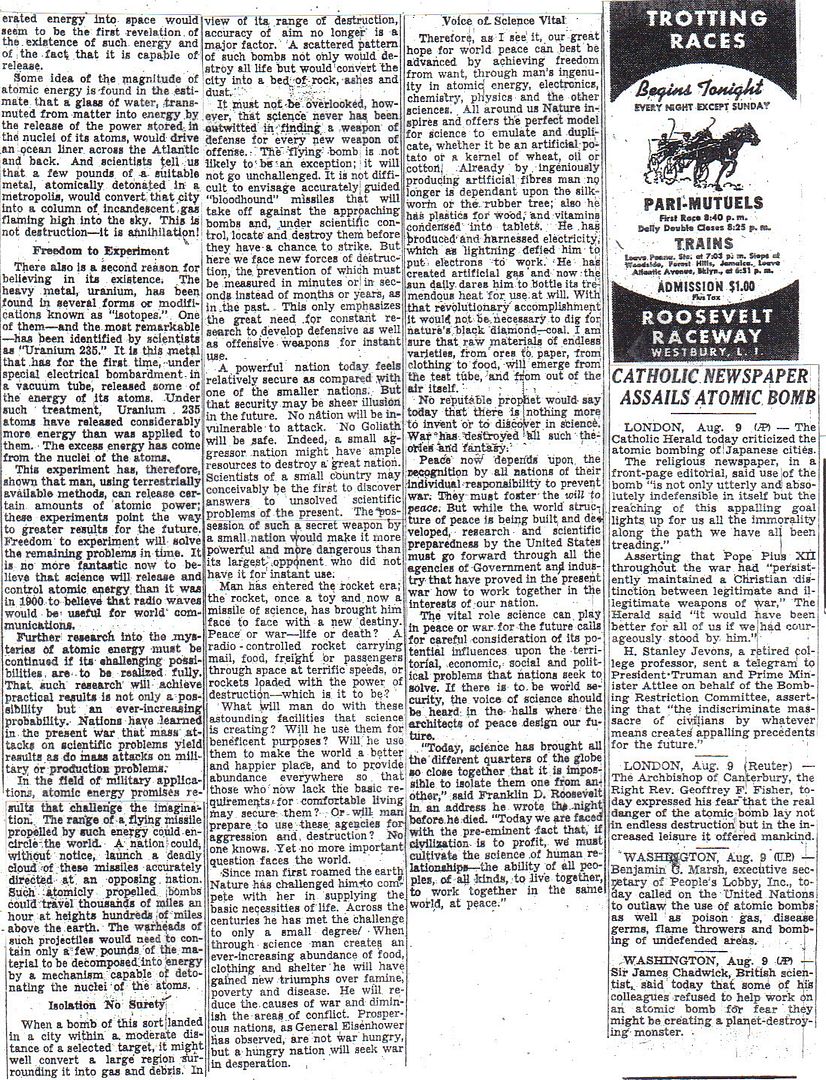
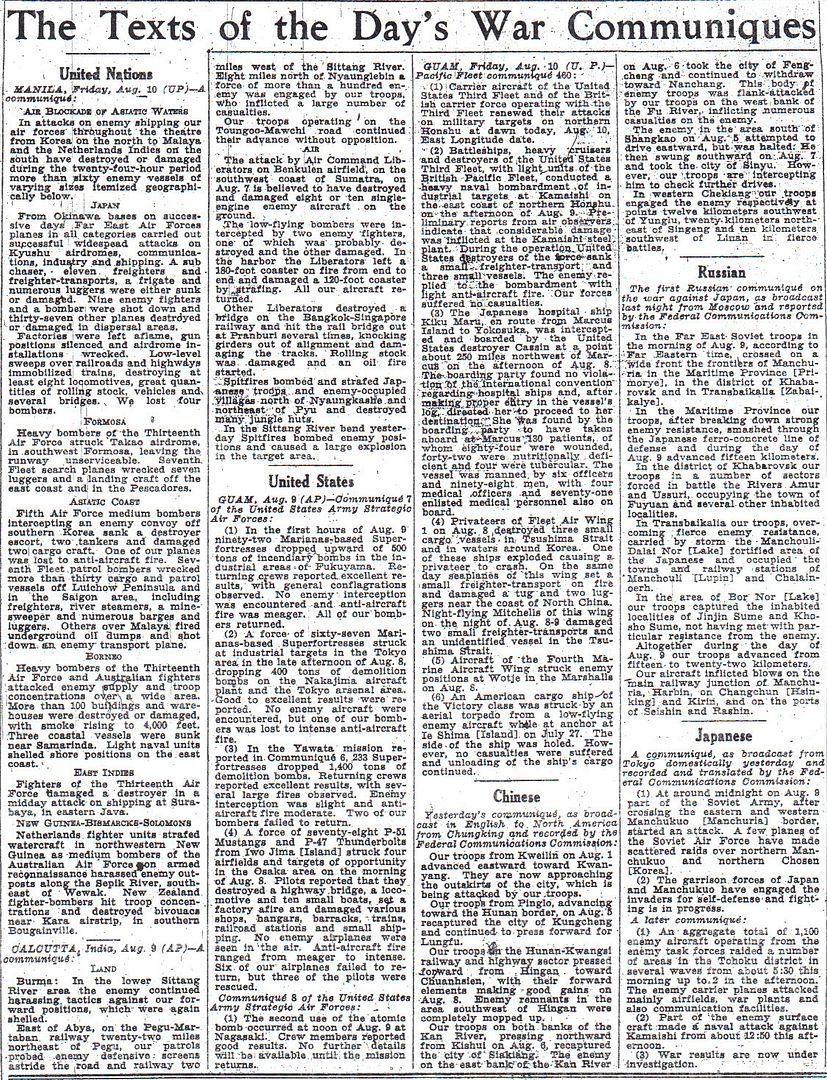
Interesting take. Thanks.
Indeed.
http://www.doug-long.com/stimsonx.htm
Excerpt from Sec. of War Henry Stimson’s diary
Aug. 10, 1945 Diary Entry [Japan’s first surrender offer and the issue of the emperor]:
“Today was momentous. We had all packed up and the car was waiting to take us to the airport where we were headed for our vacation when word came from Colonel [Frank] McCarthy [one of Gen. George Marshall’s aides] at the [War] Department that the Japanese had made an offer to surrender. Furthermore they had announced it in the clear. That busted our holiday for the present and I raced down to the office, getting there before half past eight. There I read the messages. Japan accepted the Potsdam list of terms put out by the President ‘with the understanding that the said declaration does not comprise any demand which prejudices the prerogatives of his majesty as a sovereign ruler’. It is curious that this was the very single point that I feared would make trouble. When the Potsdam conditions were drawn and left my office where they originated, they contained a provision which permitted the continuance of the dynasty with certain conditions. The President and [Sec. of State] Byrnes struck that out. They were not obdurate on it but thought they could arrange it in the necessary secret negotiations which would take place after any armistice. There has been a good deal of uninformed agitation against the Emperor in this country mostly by people who know no more about Japan than has been given them by Gilbert and Sullivan’s ‘Mikado’, and I found today that curiously enough it had gotten deeply embedded in the minds of influential people in the State Department. Harry Hopkins [special advisor to Presidents Roosevelt and Truman] is a strong anti-Emperor man in spite of his usual good sense and so are Archibald MacLeish [Assistant Sec. of State for Public and Cultural Relations] and Dean Acheson [Assistant Sec. of State for Congressional Relations] - three very extraordinary men to take such a position.”
“As soon as I got to the [War] Department I called up [White House appointments secretary Matthew] Connolly [sic - Connelly] at the White House and notified him that I was not going away and would be standing by if he wanted me. Not more than ten minutes afterwards they called back to say that the President would like me to come right over, so I hurried around there and joined in the conference consisting of the President, Byrnes, [Sec. of the Navy James] Forrestal, [White House Chief of Staff] Admiral [William] Leahy, and the President’s aides [according to Forrestal’s diary, the Presidential aides present were Director of the Office of War Mobilization John Snyder, Naval Aide to the President Captain James Vardaman, and Military Aide to the President Gen. Harry Vaughan; Walter Millis, ed., “The Forrestal Diaries”, pg. 83]. Byrnes was troubled and anxious to find out whether we could accept this in the light of some of the public statements [demanding “unconditional” surrender from Japan] by Roosevelt and Truman. Of course during three years of a bitter war there have been bitter statements made about the Emperor. Now they come to plague us. Admiral Leahy took a good plain horse-sense position that the question of the Emperor was a minor matter compared with delaying a victory in the war which was now in our hands.”
“The President then asked me what my opinion was and I told him that I thought that even if the question hadn’t been raised by the Japanese we would have to continue the Emperor ourselves under our command and supervision in order to get into surrender the many scattered armies of the Japanese who would own no other authority and that something like this use of the Emperor must be made in order to save us from a score of bloody Iwo Jimas and Okinawas all over China and New Netherlands. He was the only source of authority in Japan under the Japanese theory of the State. I also suggested that something like an armistice over the settlement of the question was inevitable and that it would be a humane thing and the thing that might effect the settlement if we stopped the bombing during that time - stopped it immediately. My last suggestion was rejected on the ground that it couldn’t be done at once because we had not yet received in official form the Japanese surrender, having nothing but the interception to give it to us, and that so far as we were concerned the war was still going on. This of course was a correct but narrow reason, for the Japanese had broadcast their offer of surrender through every country in the world. After considerable discussion we adjourned to await the arrival of the final notice.”
When we adjourned Byrnes and I went into another room to discuss the form of the paper and I told him the desire of Marshall to have one of the conditions of our negotiations with Japan the surrender of the American prisoners in their hands to some accessible place where we could send planes to get them. By this time the news was out and the howling mob was in front of the White House, access to which by the public was blockaded on Pennsylvania Avenue.”
I drove back to the [War] Department and entered into conference with Marshall and [Assistant Sec. of War John] McCloy who had just returned from his overseas trip [McCloy had been inspecting the condition of Western Europe] while I was at the White House. [Special Assistant to Stimson Harvey] Bundy, [Assistant Sec. of War for Air Robert] Lovett, and [Special Consultant to Stimson George] Harrison and I were together and I later called in [Air Force] Colonel [de Forest] Van Slyck who had written the intelligent article I had shown the President the other day on the form of a surrender; and also General [John] Weckerling [Deputy Assistant Chief of Staff] of G-2 [Army Intelligence] who has not been quite so intelligent on this matter as he might be, together with Mr. Robert A. Kinney and Mr. William R. Braisted who are acting as Japanese experts for the G-2 people. We started in in accordance with a request that Byrnes had made of me at our talk on the drafting of the whole terms of surrender including the answer to the present Japanese offer. On the latter I found for once that McCloy was rather divergent from me. He was intrigued with the idea that this was the opportunity to force upon Japan through the Emperor a program of free speech, etc. and all the elements of American free government. I regarded this as unreal and said that the thing to do was to get this surrender through as quickly as we can before Russia, who has begun invading Manchuria, should get down in reach of the Japanese homeland. I felt it was of great importance to get the homeland into our hands before the Russians could put in any substantial claim to occupy and help rule it. After all this discussion I called Byrnes on the telephone and discussed the matter with him. He told me he had drafted the answer to the Japanese notice and that he would like me to see it. So I sent over [Stimson’s aide Colonel William] Kyle to the Department and got it. While a compromise, it was much nearer my position than McCloy’s and after a while McCloy agreed that it was good enough from his standpoint. I thought it was a pretty wise and careful statement and stood a better chance of being accepted than a more outspoken one. It asserted that the action of the Emperor must be dominated by the Allied Commander, using the singular in order to exclude any condominium such as we have in Poland [i.e., there would be only one country in charge of Japan, and that would be the U.S.]. He had asked me in the morning who was the commander that had been agreed upon among our forces and I told him I thought it was [Commanding General of the U.S. Army in the Pacific Douglas] MacArthur although there had been quite an issue between the Army and the Navy to have a dual command, MacArthur and [U.S. Pacific Fleet Commander in Chief Admiral Chester] Nimitz.”
“During the morning Forrestal had called me up for the purpose of telling me he was heart and soul with me in regard to the proposition of shutting off attack and saving life during the time we discussed this. He told me that they were planning another big attack by [Pacific Third Fleet Admiral William “Bull”] Halsey and he was afraid this would go on.”
After a fifteen or twenty minutes delay, which is unusual in this Administration, the President and Byrnes came in from a conference which had been going on in the other room and the President announced to the Cabinet that we had received official notice from Japan through the intermediary, Sweden, and that Byrnes had drawn a reply to it of which they thought they could get an acceptance from Great Britain, China, and perhaps Russia, with all of whom they were communicating. The paper was in the exact form that Byrnes had read me over the telephone and which I told him I approved.”
“This has been a pretty heavy day.”
Yes, the Japanese were playing baseball long before the occupation. That’s why Korea and Taiwan also play the game.
Looking at a map of the operation, in terms of geography that is the biggest double envelopment I’m aware of.
I wouldn't mind losing a few vacation days to be in on those decisions.
Disclaimer: Opinions posted on Free Republic are those of the individual posters and do not necessarily represent the opinion of Free Republic or its management. All materials posted herein are protected by copyright law and the exemption for fair use of copyrighted works.